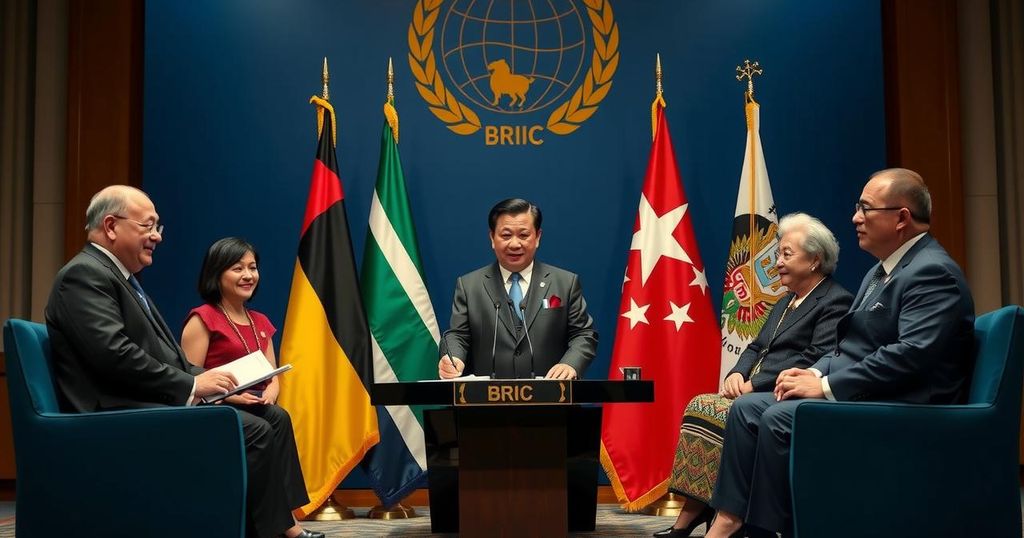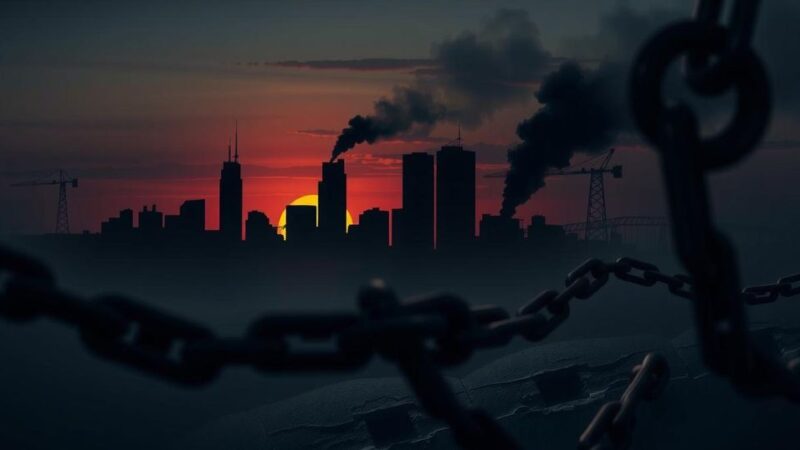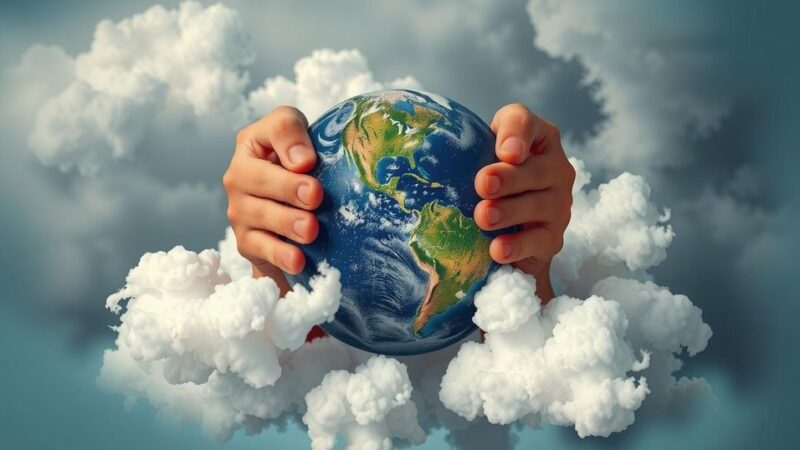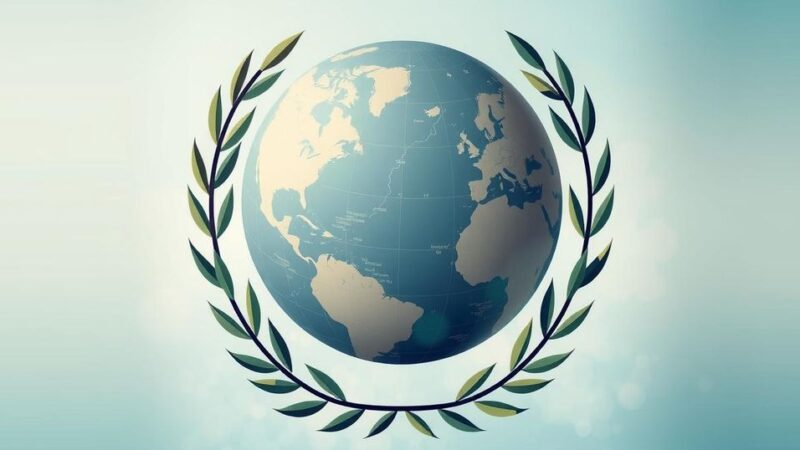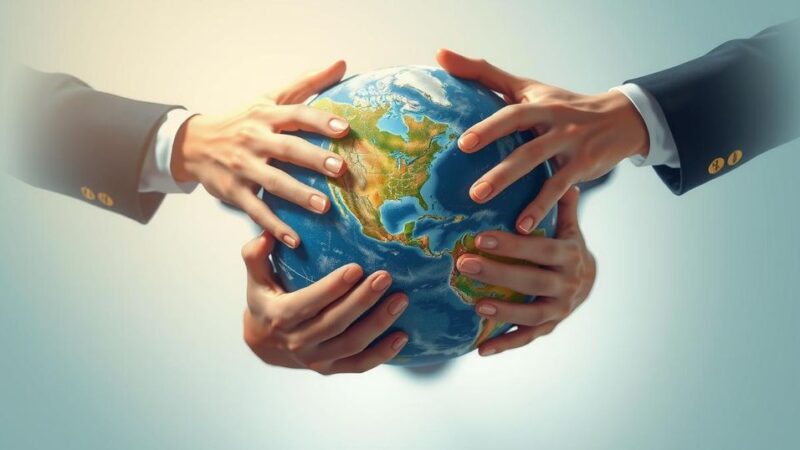Vladimir Putin hosts a significant BRICS summit in Kazan, gathering over 20 heads of state to demonstrate that Western sanctions have failed to isolate Russia. Leaders from key emerging economies, including China and India, are participating, while discussions may focus on establishing alternatives to the US dollar for trade. However, divisions among member states could limit the potential for unified action against Western dominance.
In response to international sanctions and diplomatic isolation following the invasion of Ukraine, President Vladimir Putin is hosting an ambitious summit of emerging economies known as BRICS in Kazan. This summit draws over 20 heads of state, including prominent leaders such as China’s Xi Jinping, Indian Prime Minister Narendra Modi, and Iranian President Masoud Pezeshkian. The Kremlin heralds this event as one of the largest foreign policy endeavors Russia has ever undertaken, intended to project an image of resilience against Western pressure. The summit reflects the Kremlin’s narrative that attempts to isolate Russia have been futile. Chris Weafer, founding partner of Macro-Advisory, underscores this viewpoint by stating, “The clear message is that attempts to isolate Russia have failed,” highlighting the support by nations within BRICS and questioning the long-term sustainability of the sanctions. BRICS, which originally included Brazil, Russia, India, China, and South Africa, has expanded to incorporate new partners such as Egypt, Ethiopia, Iran, and the United Arab Emirates, collectively representing 45% of the global population and approximately 28% of the world’s economy. Putin’s administration aims to utilize the summit to negotiate an alternative payment system that would minimize reliance on the US dollar for international trade, seeking to alleviate the economic challenges posed by current sanctions. This is seen as an essential step for Russia to navigate the complexities of global commerce more effectively without the influence of the US. However, the lack of consensus among BRICS members poses significant challenges. Differing national interests and historical rivalries—such as those between China and India, and tensions between Iran and Saudi Arabia—suggest that achieving a unified economic front may be overly ambitious. As Jim O’Neill, former Chief Economist at Goldman Sachs, points out, “In some ways it’s a good job for the West that China and India can never agree about anything.” This indicates that while Russia fosters a narrative of unity among BRICS, substantive agreements may remain elusive. Ultimately, as Putin convenes this summit, he faces the dual challenge of projecting a façade of solidarity while managing inherent divides among member states, aiming to convincingly present to both domestic and international audiences that Russia is not as isolated as it is portrayed.
The BRICS summit emerges against the backdrop of heightened tensions between Russia and Western nations following Russia’s military actions in Ukraine. Sanctions imposed by the U.S. and its allies have aimed to cripple the Russian economy and diminish its global standing. The significance of this summit lies in its potential to counter that narrative by solidifying alliances with other emerging economies, particularly those that share a desire to challenge the economic dominance of Western powers. The gathering serves not just as a diplomatic forum but also as a strategic platform for Russia to showcase its partnerships and draw support against sanctions.
In summary, the BRICS summit hosted by Vladimir Putin serves as a strategic response to Western sanctions and attempts at isolation. While the summit aims to present a united front among emerging economies and explore alternatives to the US dollar, inherent disagreements among member nations may hinder the achievement of significant outcomes. Ultimately, the summit represents a critical moment for Russia to navigate international pressures while fostering alliances.
Original Source: www.bbc.com
